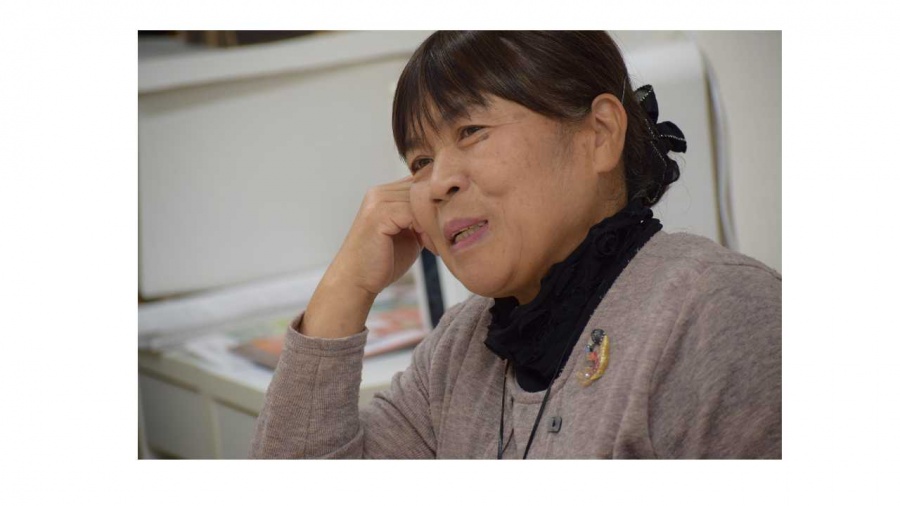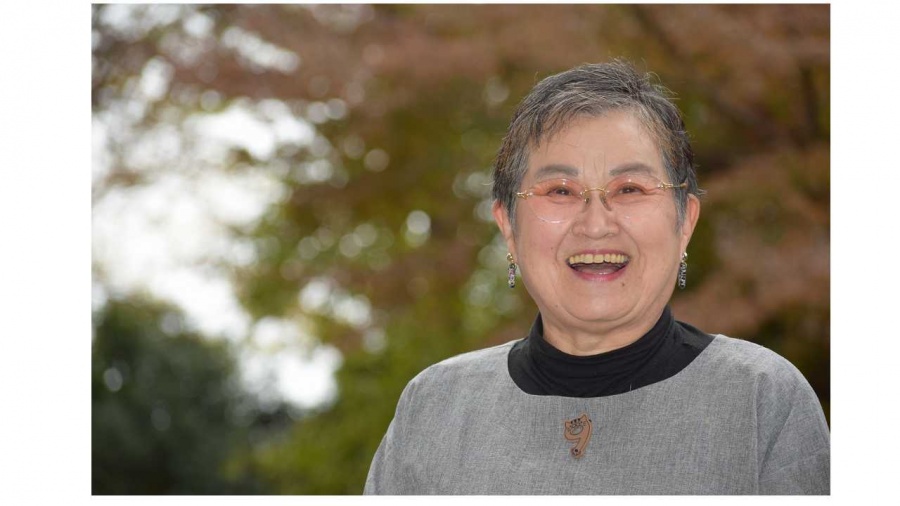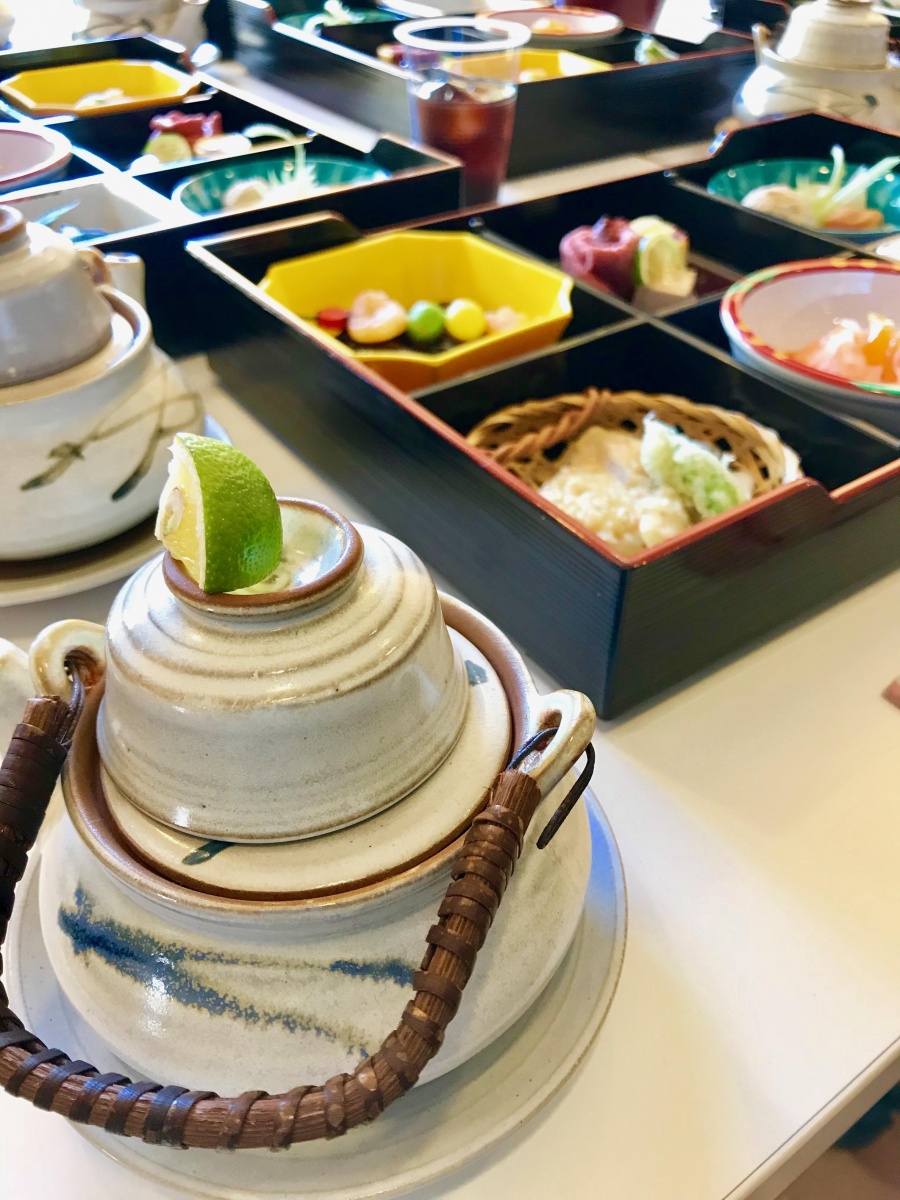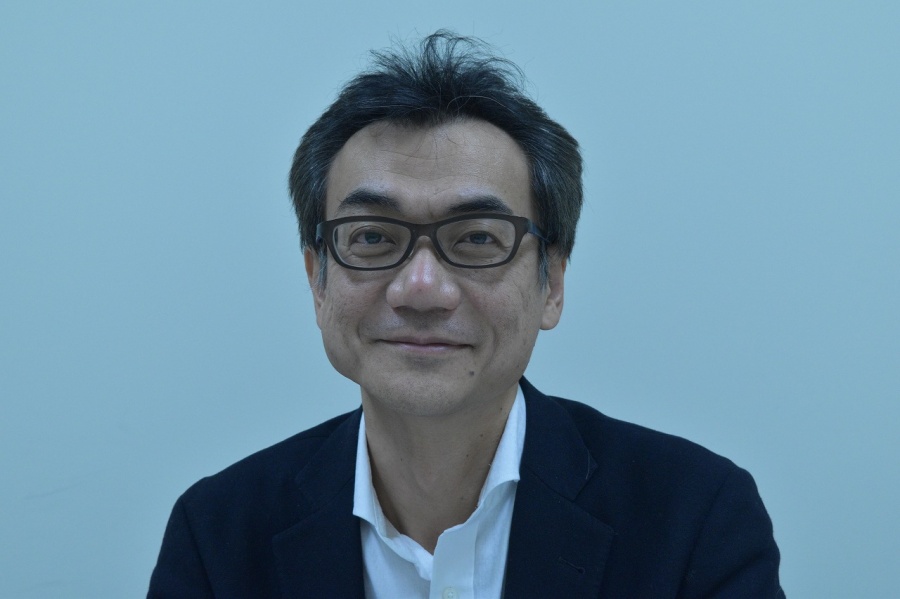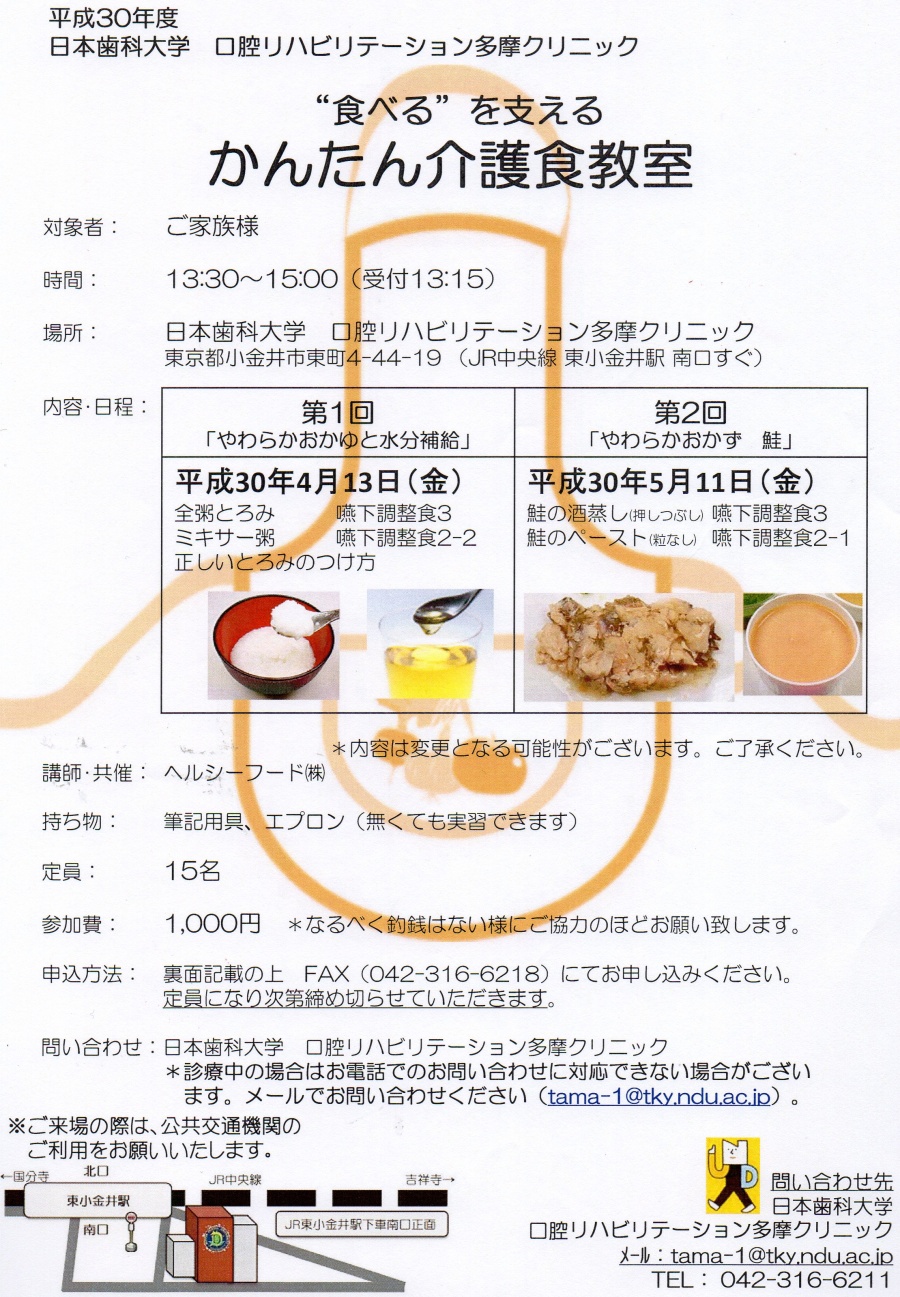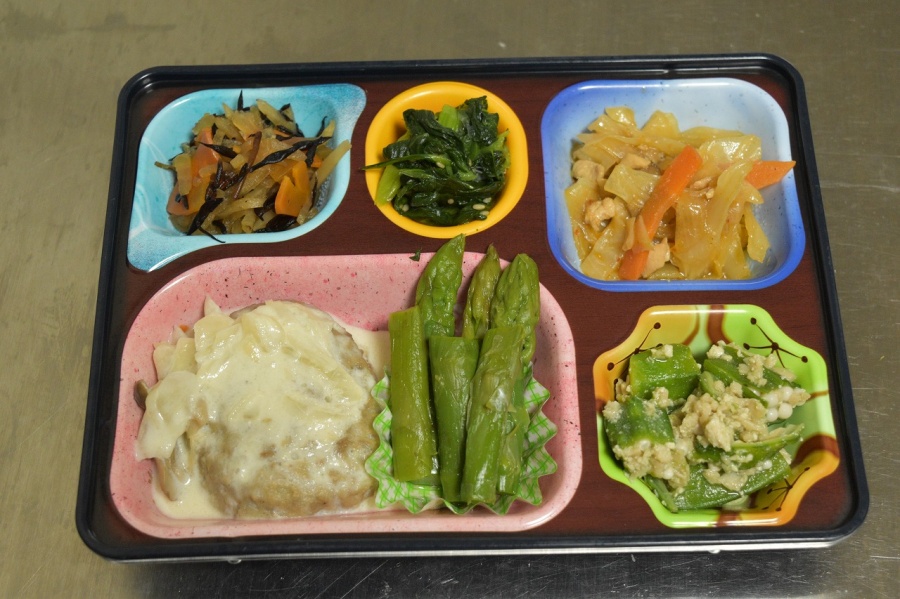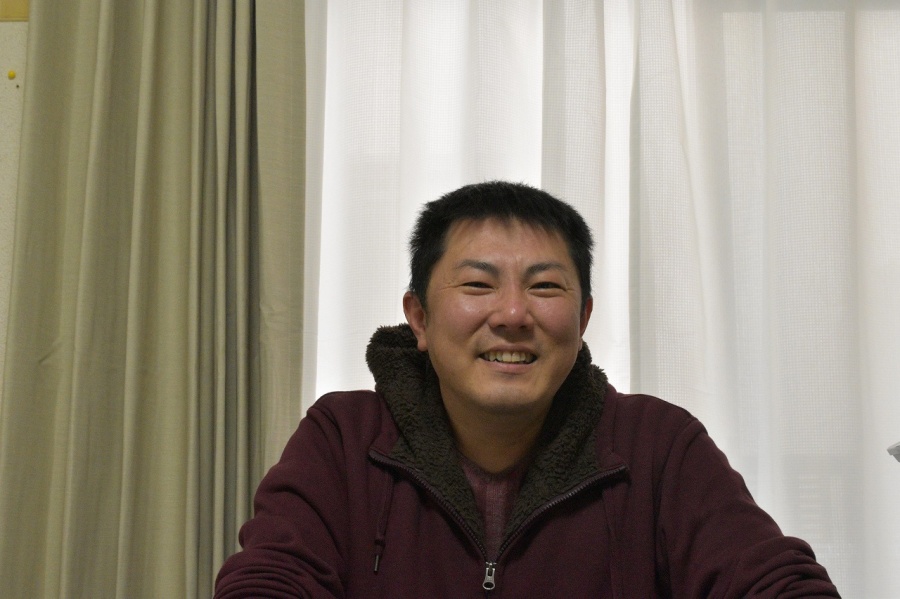今回のテーマは・・・・
小金井市の介護者にとって有益な情報 “医” がテーマです。
7号は介護に関する2つの訪問看護ステーションの情報です。
ゆったり肩の力を抜いてみて
小金井市に根を張って4年目の「えいる訪問看護ステーション」は、
小金井街道を下った前原小入口のそばにあります。
フランス語で「翼」を意味する「えいる」には、やりたいことを実現し、
出来ないことを可能にする、そんな願いが込められています。
介護される当事者と介護者である家族の気持ちの橋渡しに心をくだきながら、
看取り、エンゼルケア(亡くなった後の処置)まで、一緒に考え、一緒に寄り添ってくれます。
「介護者と要介護者が、どうしていきたいのか?なるべくひとつでも、やりたいことを
叶えていく。それだけでも、達成感が違います。でも、がんばり過ぎない。大事なのは、
亡くなってどうするかではなく、どうその時をを迎えるのか?そのプロセスなんです。
一所懸命になりすぎず、まずは大きく一回深呼吸、ゆったり肩の力を抜いてみてください」
「えいる訪問看護ステーション」代表の男性看護師佐藤友紀(ゆうき)さんの語り口はどこまでも柔らかい。ママさん看護師が多く、事務員さんにベビーシッターの資格をとってもらい、スタッフが安心して子育てをしながら仕事ができる、そんな働きやすい環境作りにも奮闘中。看護ステーション内も、看護師スタッフがひとりで抱え込まずに、常に利用者の情報を共有し、きめこまやかにコミュニケーションを図れるように工夫されています。
働くよろこび、やりがいが明るく自然に溢れているのが「えいる訪問看護ステーション」です。
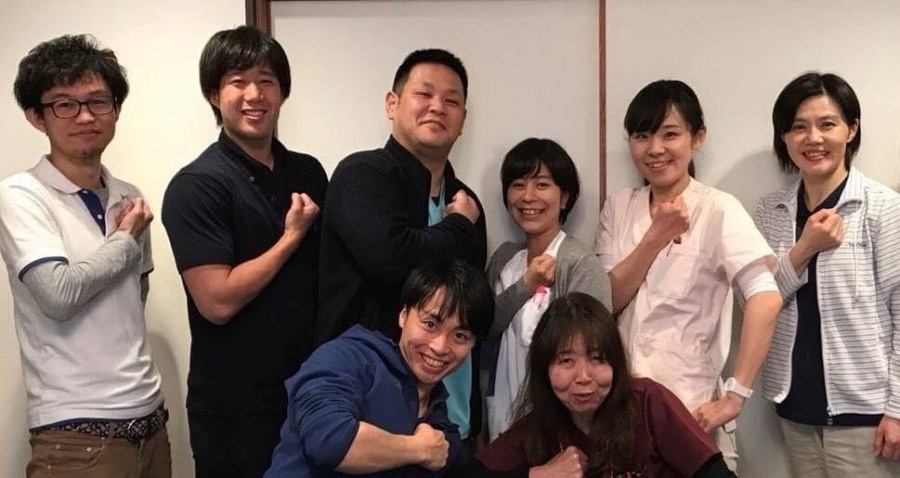
えいる訪問看護ステーション
前原町4-21-12 キャロットホームズ1
電話 042-201-1513
訪問看護は街の要(かなめ)
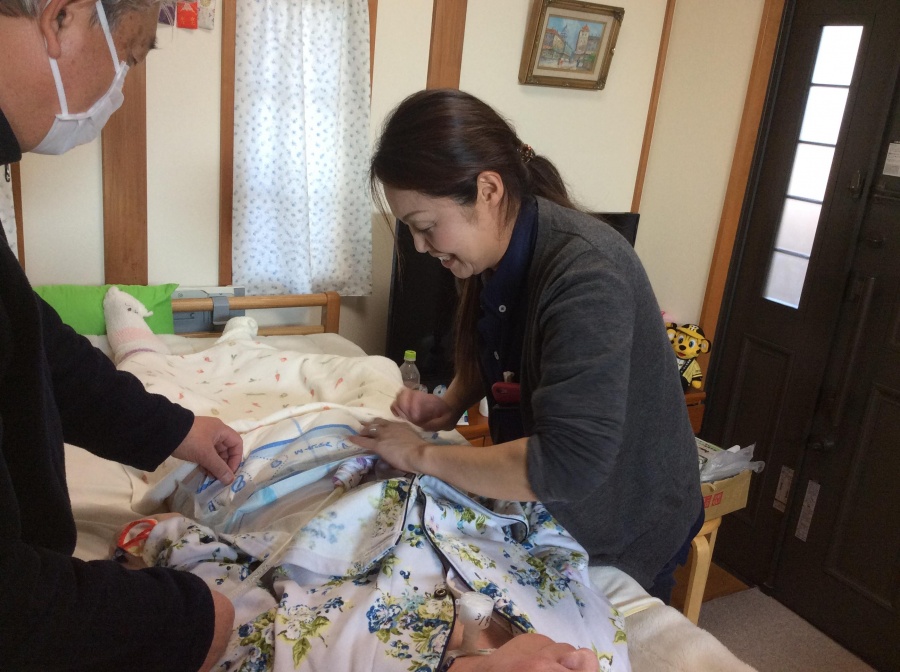
小金井市と東の梶野町と武蔵野市の境界線の、少しだけ武蔵野市に入った所に「ナースステーションたんぽぽ」はあります。さらに、たんぽぽさんが、介護予防の交流サロンである「ikiなまちかど保健室みゅうちゅある」という場所を作った理由も「介護のことなど日頃感じているありのままを思い思いにしゃべり、さらにその経験を地域のみんなで共有する場を作りたかったから」と、代表の丹内(たんない)まゆみさんは言います。実に話しやすく、ざっくばらんなので、敷居が低い。こっちがどんな気持ちであっても許して受けとめてくれる。丹内さんやスタッフは、井戸端会議のように相談にのってくれます。
医者やケアマネージャーの言う通りじゃなくても構わない。
在宅での看取りが増えています。「ひとり暮らしだから、家では死ねないとか、ありえない。本人が『どうしたいのか?』その気持ちこそが大事なんです」。
過去に「ナースステーションたんぽぽ」を利用したPさんは言います。
「なじみの看護師さんが来てくれるだけで安心でした。いざという時に、電話を24時間いつかけてもいいという安心感。あるとないとでは、全然違う」。
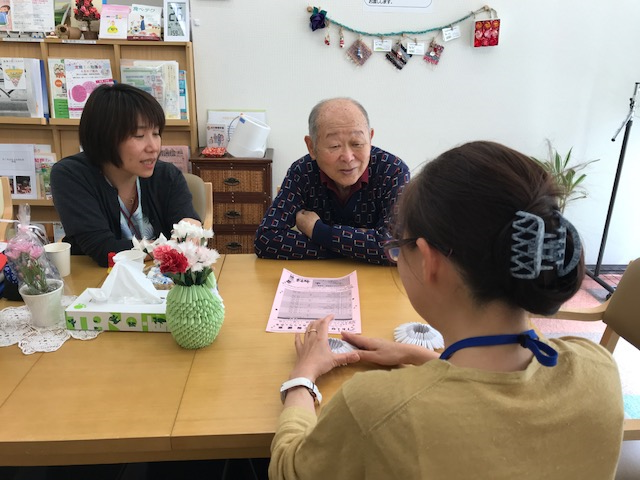
ナースステーションたんぽぽ
武蔵野市境5-27-24 電話 0422-50-2262
Iki(いき)なまちかど保健室みゅうちゅある
武蔵野市桜堤1-8-7 電話 0422-52-3111
(小金井市の方の利用は、境のたんぽぽの事務所から2キロ程度です。お問合せください)
大切な人との別れ
「グリーフの日々」 お袋への思い 47歳 男性
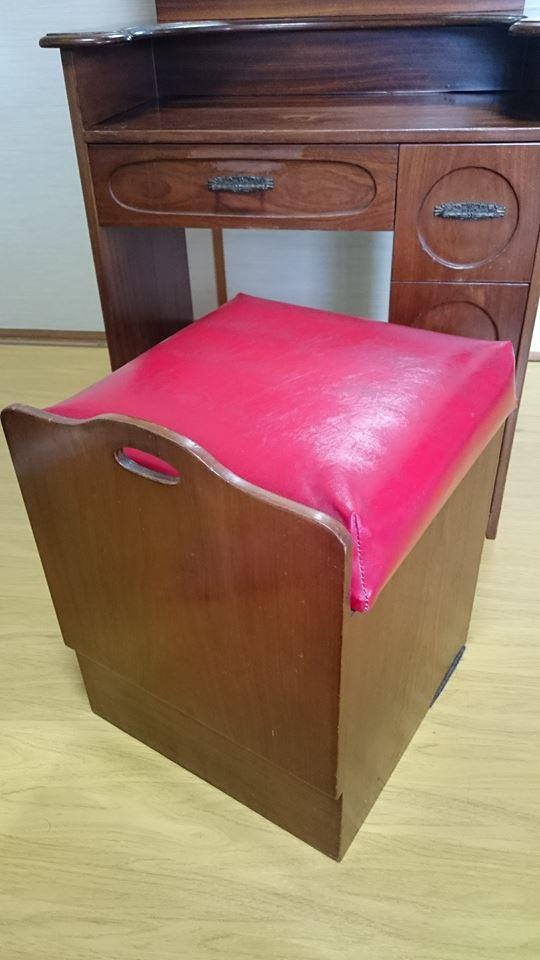
去年の夏にお袋を亡くしてあっと言う間に10か月。早いような、短いような何とも言えない感覚。2015年末にお袋から「健康診断で引っ掛かったから一緒に病院行ってくれない?」と言われて、翌年2016年2月肺癌診断確定。腰骨にも転移が見つかりステージ4。あの時は、受け入れられずと言うより受け入れなかった。ニュースでも末期癌から生還した等聞く事もあり、何か治る術はある筈だと信じるしかなかった。4月にお袋と同居を開始。
お袋の介護は一言で表現できるものではなかった。癌のショックにより反応性うつ病になり自己中心的な言動や行動、痴呆症にも似た行動で、自分もおかしくなりそうだった。いや、おかしくなっていたと思う。
一年後2017年4月には転移した腰骨が悪化し痛みが増し、ショートステイ先で急変。起き上がれない状態に。トイレもオムツに。生活費を稼ぐ為に仕事をしなきゃいけないから、自宅でずっと付きっ切りの介護ができないし、掛かり付けの病院は、病室が空いてないと言われ入院させてくれない。先の見通しのつかない不安の中での寝たきり介護は精神的にも極限に達していた。
しかし運よく、5日で受け入れ先が見つかった。まずは病院で痛みを緩和調整し、隣接共同経営してる特別養護老人ホームに移動。そこも24時間看護師が常駐し何かあったら隣の病院から主治医が飛んで来る体制。
とてもよくして頂いたけど、むなしくも、3か月後には他界。最後に主治医や施設から「もう看取りの段階。葬儀屋を探してください」と言われた時は気が狂いそうだった。
葬儀も終わって落ち着いた頃に、ふと夢に出てきて、泣いた事もあった。やっぱり寂しい。介護等、色々大変だった事もあったが今はお袋との思い出として残っている。
それから、少しだけお袋と過ごした家に一人で住んでいたが、この4月、家の更新を機に引っ越しをした。お袋が使っていた家具を処分するのは、とても寂しい気持ちになった。
でも前に進まなきゃ。引っ越しの決断は、お袋の思いを断ち切る意味ではない。むしろ逆だ。お袋や先に亡くなっている親父も、仕事がうまくいっている時は、とても喜んでくれた。断捨離して、頑張んなさいとお袋に言われている気がした。安心させてあげなきゃ。
今できる唯一の親孝行は、自分が幸せになる事だと思う。今は正直まだまだ仕事は苦しい状況。でも、お袋、親父、天国で見ていてくれよな。
介護者のホンネ
◆ 親が「信頼できる有料老人ホームにお世話になれて良かった」と思えた時は
幸せな気持ちになれたのですが、現実にはスタッフの入れ替わりが激しかったり、
様々なトラブルの報告があると、複雑な気持ちになるものですネ。有料は簡単に
後戻りはできないから、気をつけなきゃ。(60代女性)
◆ 母の認知症やさみしさに付け込んだ悪徳業者との戦いの方が凄まじいものだったから、その後の母の認知症の介護はむしろ可愛らしく、いとしいものに思えました。(70代女性)
◆ 泣けないんだよ、泣けないわたしは冷たいのかな?(70代女性)
◆ 母の薬で悩んでいた時、鍼灸医の先生が内臓がボロボロの時に、
どんなに薬を変えてもダメ。とめて体力を回復させる所からでないと、
そう教えてくれ、納得しました。(50代女性)
◆ 育児と同時進行で体育会系の勢いで介護をやりました。グチを言い合える仲間がいて乗り越えたのはラッキーでした。支える場、支えてくれる人がいてくれることの大切さを痛感しています。(60代女性)
編集長のつぶやき
訪問看護の取材をして痛感したのは、どんな最期を迎えたいのかを事前に家族でちゃんと話し合っておくことの大切さ。いざ症状が急変すると、ついつい病院へ。そうなってしまう。その時です。そのときこそ、なじみの訪問看護師さんに、連絡を取ってください。そして在宅医療の医師に来てもらえば、在宅で看取ることができるんです。
Caregivers’ Newsletter No. 7
Visit Nursing
How does the care receiver feel? And what do you want to do?
“Visit nursing stations” are essential anchors in your town. We will introduce you how visit nursing approach caregiving and some crucial situations such as saying goodbye to the beloved ones.
Eiru Visit Nursing Station
Relax your shoulders!
They are in their fourth year since they launched their work in Koganei City. “Eiru” in their name comes from the Japanese pronunciation of a French word “Aile” which means “wing”. It implies their wish to realize what they want and to make the impossible possible.
“What is the direction that we want to aim at? Fulfill what we want to do, even one at a time, and it would change our sense of accomplishment.” This was what they discussed.
Also they created employee-friendly working environment. Since many of their nurses have young children, they had their admin assistant get a babysitting license so that the staff can work without worry during childrearing.
Bridging the feeling of those who are cared and that of the family who are caregiving, the visit nurses at Eiru give consideration about the goodbye and the “angel care” (body treatment after death) and act together with the family.
“The most important is not what you should do when your beloved one passes away. Rather, it is the process of how you accept that moment. Please take a big deep breath, relax your shoulders and try not to push yourself too hard.”
The words of Mr. Yuki Sato, a nurse and the representative of Eiru, are soft and gentle in every respect. The communication among the nurses and other staff at the visit nursing station is filled with the will and motivation to share the problems and to support their users together. You will find the atmosphere very natural and bright.
Eiru (Aile) Visit Nursing Station
1, Carrot Homes, 4-21-12 Maehara-cho, Koganei-shi, Tokyo
Tel: 042-201-1513
Nurse Station Tampopo [Tampopo means “dandelion”]
Visit nursing is an anchor in the town
We are seeing more and more cases of ending one’s life at home. You don’t always have to follow what the doctor or the nursing care manager says.
This is an age where living alone is quite common.
Is it impossible to end one’s life at home if one is living alone? That is not true.
What you really want to do is important.
Here is a comment from a person named P, who used “Nurse Station Tampopo” in the past. “It was so comforting that the nurse you know well would come to you and that you can call the station 24 hours a day in an emergency. It is totally different whether you have this or not.“
Tampopo opened a place called “Iki na Machikado Hokenshitsu [Town’s Smart Healthcare Room]” where they invite people to chat freely about their caregiving or anything that are on their mind. Ms. Mayumi Tannai, Tampopo’s representative, says, “Please feel free to come and talk.” She and her staff are all easy to talk to and very frank. They accept you and welcome you no matter what kind of feeling you are having. They will listen to you with empathy and talk with you as if in a casual chat.
Nurse Station Tampopo
5-27-24 Sakai, Musashino-shi, Tokyo
Tel: 0422-50-2262
Iki na Machikado Hokenshitsu “Mutual”
1-8-7 Sakurazutsumi, Musashino-shi, Tokyo
Tel: 0422-52-3111
(If you are a Koganei citizen living in approx. 2 km distance from Tampopo in Sakai, Musashino-shi, you are eligible for service. Please consult Tampopo.)
Good-bye to the loved one: Days in Grief
Ten months have passed since I lost my mother last summer. Days have gone by very quickly. It feels fast and short; it’s just hard to describe.
At the end of 2015, Mother told me, “Something was found out in my health check-up, so can you come with me to the hospital?” and she was diagnosed with lung cancer in February 2016. The cancer had metastasized to her hipbone and was diagnosed as Stage 4. At that time, I just couldn’t accept it, rather I dared not accept.
I had heard in the news that some people survived from terminal cancer. I had to believe that there is some way to cure her illness.
I started to live with my mother in April. Taking care of her was not something that can be expressed in simple words. She suffered from reactive depression from the shock by the cancer. Her words and behaviors were self-centered and her behaviors were resembled those of dementia. It almost made me mad, or it did actually make me mad as I reflect.
A year later in April 2017, the cancer that had spread to her hipbone worsened and caused more pain. Her condition suddenly deteriorated during her “short-stay” at the care facility and she could not get up from her bed since then. She now had to use diapers.
I could not stick with her at home to take care of her because I needed to work to earn a living. But she was not admitted to the hospital that she went daily because there was no open bed. I was mentally agonized in this anxious situation of caring for the bedridden without being able to look into the future.
Luckily a place for her to stay was found after five days. First of all, she had her palliative care in a hospital to control her pain, then she moved to the adjacent, jointly-managed “special elderly nursing home”. This “home” had nurses staying for 24 hours and a doctor would come immediately from the adjacent hospital in case of emergency. The staff took good care of her; however, she sadly passed away three months later.
I felt almost crazy when the doctor and the staff told me, “It’s now time to say good bye to her. Please look for an undertaker.” After the funeral ended, Mother appeared in my dream and I cried. I just felt so lonely.
Giving care was such a difficult issue but now it stays in my heart as a memory of my mother. I stayed alone in the house I lived with her, but shortly after in April, I moved to a new place since I had to renew my contract. It made me very sad to throw away the furniture Mother had been using.
But I must move on. The reason I made up my mind to move home was not to cut off my thoughts for my mother. Rather, it is the opposite. Both my mother, and my father who has already passed away earlier, were very happy when I was doing well with my work. I felt like my mother was telling me to work hard after clearing up all the old things. I must relieve her.
The only “filial duty” that I can perform now is to become happy myself. To be honest, my work is still in a difficult situation. But, Mother, Father, please keep your eyes on me from the Heaven above.
True Feelings of Caregivers
I was happy when my parent was accepted at a reliable, private residential home. However, my feeling changed when I got to know the reality of their high employee turnover and various other troubles. I am baffled. It is not easy to move out from a private home, so you must be careful. (Lady in her sixties)
I experienced such a horrible fight with a dishonest dealer who took advantage of my mother’s dementia symptoms and loneliness. Because it was so terrible, taking care of my mother’s dementia after that was rather sweet and dear. (Lady in her seventies)
I just cannot cry. Does that mean I’m cold-hearted? (Lady in her seventies)
When I was worried if I should change my mother’s medication, my acupuncturist advised me that it is no good changing any medicines if her organs are worn out. She should first stop her medication and restore her organs. I was very much convinced. (Lady in her fifties)
I experienced caregiving at the same time as childrearing. It was like belonging to an athletic club, everything was physically tough. But I was lucky to have friends to whom I could grumble. I was able to move on. I feel the importance of a place that supports you and people who support you. (Ladies in her sixties)
Murmurs of Yuya the Chief Editor
Tears flow from your eyes no matter how many years pass by.
Of course this happens to you because the person was so dear to you.
It’s very natural that you cry.
Please cry as much as you want from the bottom of your heart.
It’s good to be able to cry even after five years or even twenty years.
But if you cannot cry, don’t think of yourself as cold-hearted.
It’s okay not to cry, and it’s also okay to cry.
If that’s the way you feel right now, your honest and true feeling, let it be that way!
Just one thing: When tears flow from your eyes, don’t stop them. Let them flow!
This is how I deal with my tears.
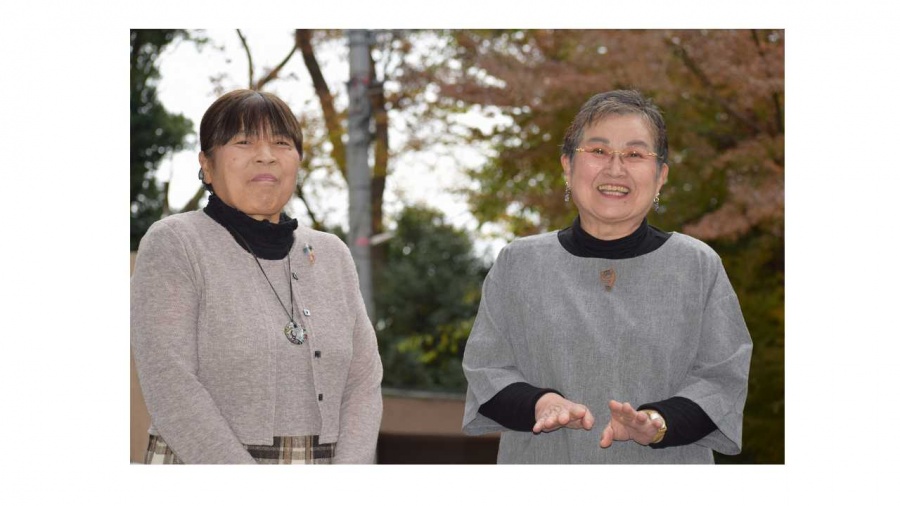 ※写真:右:小川さん 左:前原さん
※写真:右:小川さん 左:前原さん